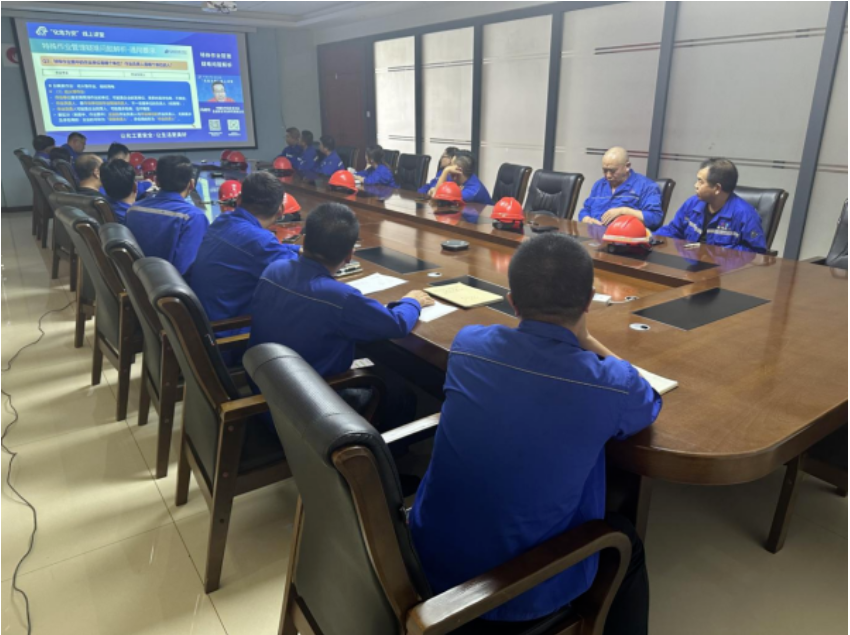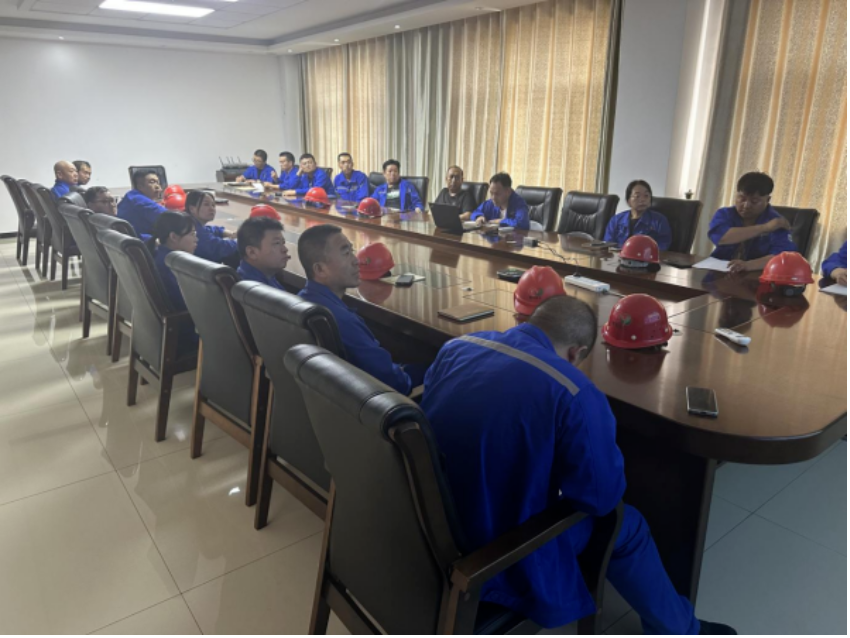NEWS
Credit Suisse conducted a special operations management and troubleshooting learning session this week.
2025-07-25
This week, Credit Suisse held a learning event to resolve difficult issues in special operation management. This live broadcast focused on the "Safety Regulations for Special Operations in Hazardous Chemical Enterprises" (GB30871—2022) and key issues in practical operations, providing a detailed discussion with both professional and practical content, offering clear and strong guidance for special operation safety management.

I. Review of Core Live Broadcast Content
1. Standard Interpretation and Risk Control: The lecturer provided an in-depth interpretation of the core clauses of GB 30871—2022, covering management details for various special operations such as high-altitude work, hoisting, and temporary electricity. Combining typical accident cases, the lecture visually analyzed potential risks in operations (such as fires caused by violations in hot work) and explained corresponding risk control measures, emphasizing a management logic centered on "risk prediction — implementation of measures — process supervision".
2. Detailed Explanation of Key Operation Types: Taking hot work as a typical example, the lecture clarified the grading standards for Class A, Class B, and Class C hot work, detailed the operation approval process (including the division of responsibilities for applicants, approvers, and supervisors), and the on-site management requirements (such as the validity period of work permits and equipment spacing), providing a directly referable regulatory basis for practical operations.
3. Q&A on Difficult Issues: The session addressed common corporate concerns (such as the configuration of registered safety engineers and standards for high-altitude work certification), resolving the practical challenges of "how to connect regulatory clauses with actual scenarios".
II. Learning Outcomes
1. Deepening of Knowledge System: Systematically mastering the regulatory framework for special operations, clarifying the core logic of "why to manage, what to manage, and how to manage," transforming understanding of key aspects such as operation classification and approval processes from "vague understanding" to "precise grasp".
2. Strengthening of Risk Awareness: Through accident cases and risk analysis, a deep understanding of the principle that "details determine safety" in special operations was achieved — even minor issues such as non-standard work permit completion or insufficient equipment spacing can lead to major accidents, further reinforcing the understanding that "safety is no small matter".
3. Improvement of Practical Skills: The specific requirements regarding responsibility division and process control in the live broadcast, as well as the targeted guidance in the Q&A session, provided clear solutions for addressing "implementation difficulties" in actual work, directly applicable to pre-operation preparation and process supervision.
This live broadcast learning was not only a knowledge supplement but also an upgrade in safety management thinking. In the future, Credit Suisse will focus on "risk control" and adhere to regulations to effectively improve the management level of special operations and build a solid defense for enterprise safety production.

III. Future Directions
1. Implementation of Standards: Transforming what was learned in the live broadcast into concrete actions, strictly implementing the requirements of GB 30871—2022 in subsequent operations, focusing on strengthening pre-operation risk assessment, compliance with the approval process, and on-site supervision to ensure that every operation is justified and supervised.
2. Sharing of Team Experience: Organizing the core content of the live broadcast and personal insights, sharing them with team members through internal communication, focusing on explaining the management key points of high-frequency scenarios such as hot work, and promoting the improvement of safety awareness and practical skills for all employees in special operations.
3. Continuous Improvement: Based on the content of the live broadcast, checking the existing management processes of the enterprise, identifying potential loopholes (such as work permit management and personnel responsibility coordination), optimizing the system according to regulatory requirements, and shifting from "passive compliance" to "proactive prevention".
This live broadcast was not only a knowledge supplement but also an upgrade in safety management thinking. In the future, we will focus on "risk control" and adhere to regulations to effectively improve the management level of special operations and build a solid defense for enterprise safety production.
Add:Hezuolu, Ulan Buh Industrial Park, Alxa Economic Development Zone, Inner Mongolia
Tel:+86 483-2240039 +86 483-8185836 +86 13703793553
Fax:0483-2240036
Zip:750336


